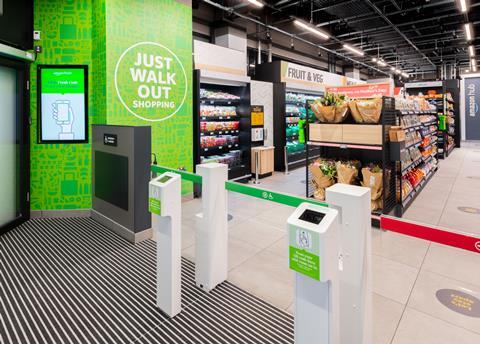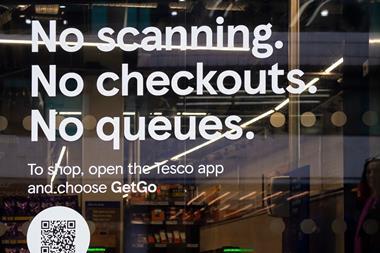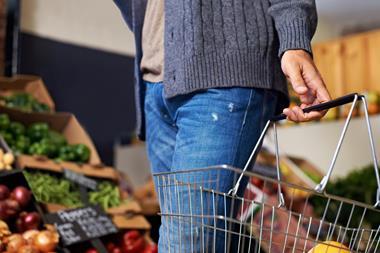The opening of the Amazon Fresh store last week in London has received coverage from all over the world. Since this is located on our doorstep, many will ask themselves what that opening means for the UK convenience sector and whether this marks some sort of turning point?
The global trend towards more automated retail technology and taken to the extreme of “unmanned or unstaffed stores” is massive. Retailers on all continents were already trialling new concepts amongst them many European chains such as Auchan, Carrefour, Coop, Edeka and Migros. The onset of the pandemic, with consumers avoiding personal contact, has accelerated this trend.

If you have been to the Amazon Fresh store or seen pictures, you will have noticed that this is not an unmanned store, instead there are a lot of staff is on the shop floor. This is not just in week one. There is a reason Amazon itself calls it “just walk out shopping” and the press has called it “till-less grocery store” (BBC) or “cashierless store” (e.g. Bloomberg). What they offer is a potentially unmanned customer experience, meaning a customer can shop without interacting with staff, but that does not mean there is no staff in the store. Looking at the US stores it seems staff that were formerly bound to the cash desk now have time to wander around the store and provide service.
Intriguing about this is that Amazon has removed a bottleneck and some of the most negative customer touchpoints: the check-out and payment process and the potential wait for it. Prior research has also shown that contactless payment, reduces the feeling of “pain” of the payment process, since we hardly feel at all. Smart move.
Does this mean that convenience stores in the UK will soon all have automated checkouts? Large, trusted players such as Amazon will impact both consumers and retailers. On the consumer side they will broaden the acceptance to use technology for self- and automated checkout. At the same time my prediction is that the Amazon Fresh opening will trigger other UK retailers to invest in technology allowing for a more unmanned experience to stay competitive and up-to-date.
Despite more and more technology in retailing, many customers highly value the personal interaction with the staff in their local convenience stores, in particular during the pandemic. Therefore, my recommendation short and mid-term is to provide options and hence enable your customers to have the journey they prefer. Give those that want the unmanned, technology-enabled journey the ability to self-checkout. Instead for those that want the person-infused journey including the small chat and the smile of your friendly staff provide the traditional cashier.
Should we be expecting a large roll-out of Amazon Fresh stores across the UK? The core logic of Amazon’s business model has always been to gain access to the consumer and then capitalise this access. Why else would it have made sense for them to e.g. start selling used books in their early days or later on to let other providers sell their goods via Amazon Marketplace? They want to be the first place a consumer visits when wanting to buy something online, more or less a search engine for all goods.
Amazon’s move into offline grocery retailing has always been interesting. Their first Amazon Go, opened in the US in 2016. This was five years ago, which in retailing is an eon. Amazon has very deep pockets, so by now why are there only fewer than 30 of these “just walk out” stores, rather than thousands across the US and the world? One argument is of course that the technology is still expensive, for sure, but this will partly solve itself over the course of time. The grocery sector is too big not to be attractive for Amazon, but it is also a highly competitive and low margin business. Therefore, if we apply the logic of “access to customers” in my view what they do is trialling technology and providing a couple of showrooms and in this case the customers that want access to are you, retailers. We might see more Amazon Fresh stores, but I’m not sure this will be as big as one might fear, what they really want is to gain access to retail customers and sell their just walk out technology, ideally in a bundle with some of their other services such as Amazon Web Services, which are in contrast to grocery retailing high margin businesses.



































No comments yet